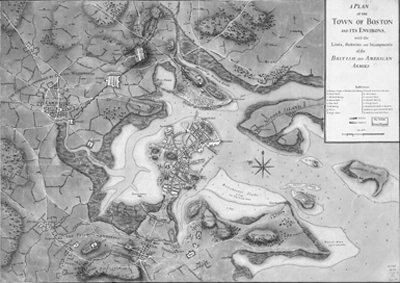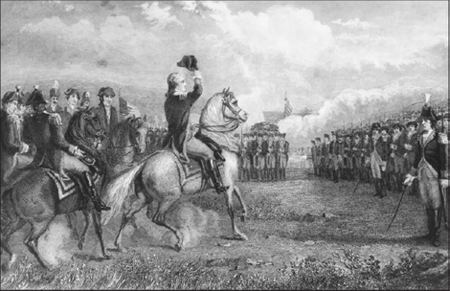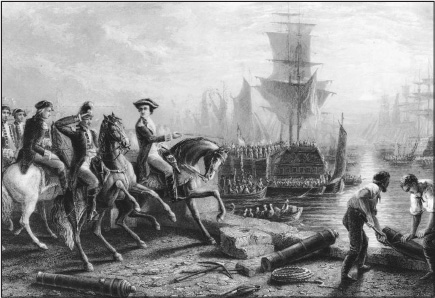A bold deception gave George Washington his first victory in the American Revolution.

After spending the winter holed up in Cambridge, General George Washington was determined to drive the British from Boston. One morning when the Redcoats there awoke, they were shocked to find that the hills looking down on Boston were bristling with cannon. Washington was throwing down the gauntlet, his guns poised to blow the enemy to kingdom come.
The British chose not to fight. They evacuated ten thousand men and two hundred warships. Boston was free without a shot being fired.
But what the British didn’t know was that Washington’s gambit was an enormous bluff. Despite the awesome display of force, he lacked one key ingredient to back it up: gunpowder.
Washington was so short on gunpowder that his army would have been able to throw only a few shots at the British before retreating. So severe, in fact, was the colonial powder shortage that the British could have easily taken Washington’s army and crushed the nascent rebellion any time during the previous six months.
If only they had known, American history might have taken a very different turn.
Washington may have lacked gunpowder, but he proved to have something more important: the nerve and audacity that would be needed to see the Revolution through to the finish.

Shortly after taking command of the army in June of 1775, Washington discovered that he had only enough gunpowder for each soldier to fire a handful of bullets. Brigadier General John Sullivan described the moment. “The General was so struck that he did not utter a word for half an hour.”
Gunpowder was in short supply because the British had long discouraged its manufacture in the colonies. The problem was eventually eased by importing large quantities from French traders. But even five years later, just before the Battle of Yorktown, Washington’s supply of powder was reported to be in a “wretched and palsied state.”
“TO MAINTAIN A POST WITHIN MUSKET SHOT OF THE ENEMY FOR SIX MONTHS TOGETHER WITHOUT POWDER . . . IS MORE THAN PROBABLY EVER WAS ATTEMPTED.”
— GEORGE WASHINGTON, IN A LETTER TO CONGRESS, JANUARY 1776

With Washington’s cannons frowning down on them, Lord Howe and his British army completed their evacuation of Boston by sea in less than two weeks.